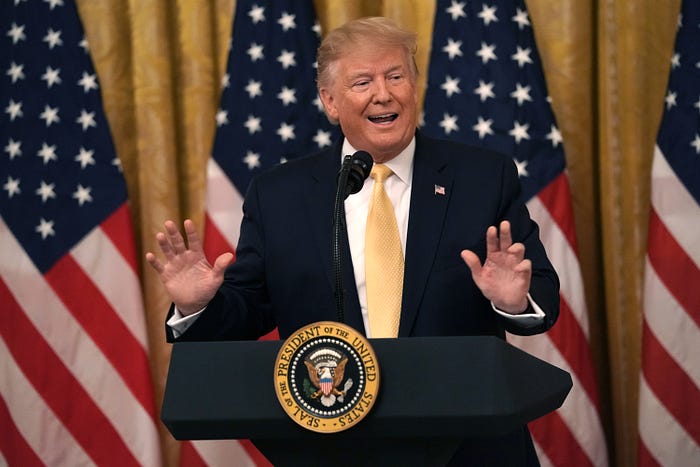Member-only story
How Trump’s ‘Social Media Summit’ Muddied the Waters on Tech
Platforms like Facebook should be held to account — but not like this

 You might expect that a “Social Media Summit” at the White House would include major social media platforms, like Twitter and Facebook, and foster useful policy conversations about how those platforms affect democracy and whether they need to be regulated.
You might expect that a “Social Media Summit” at the White House would include major social media platforms, like Twitter and Facebook, and foster useful policy conversations about how those platforms affect democracy and whether they need to be regulated.
President Donald Trump’s Social Media Summit on Thursday, which was closed to the press, did none of those things. The gathering brought together fringe voices, conspiracy theorists, and far-right online agitators to complain about alleged censorship by tech companies, and it gave the president another opportunity to grouse about what he sees as his declining Twitter reach.
“I used to watch it, it’d be like a rocket ship when I put out a beauty,” Trump reminisced about his old tweets at the summit, some of which were printed out on poster boards and displayed at the event.
Trump and many of his supporters are stuck on the idea that social media platforms are biased against conservatives. In fact, as investigative journalist Renee Diresta explained in Wired last year, there is no credible evidence to suggest that’s the case. Tech executives are not sitting around deciding what news and memes should be consumed. Algorithms decide what content is most relevant to Facebook and Twitter users, and the political leanings of that content can seem quite random. “Even the creators don’t always understand why it recommends one video instead of another,” Guillaume Chaslot, an ex-YouTube engineer who worked on its algorithm, told Diresta in the piece.
A doctored video of House Speaker Nancy Pelosi slurring her speech and sounding drunk, for instance, received over a hundred million views on Facebook earlier this year, and the site refused to take it down even after learning that it was fake. Right-wing accounts on Twitter also worked together to amplify a viral tweet from conservative operative Ali…








